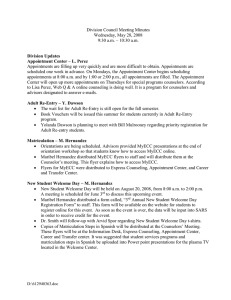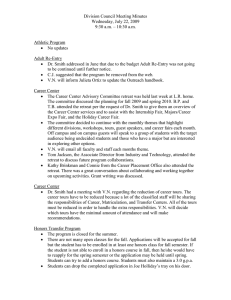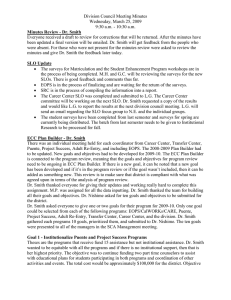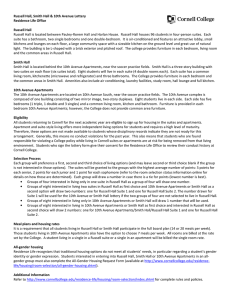W C P
advertisement
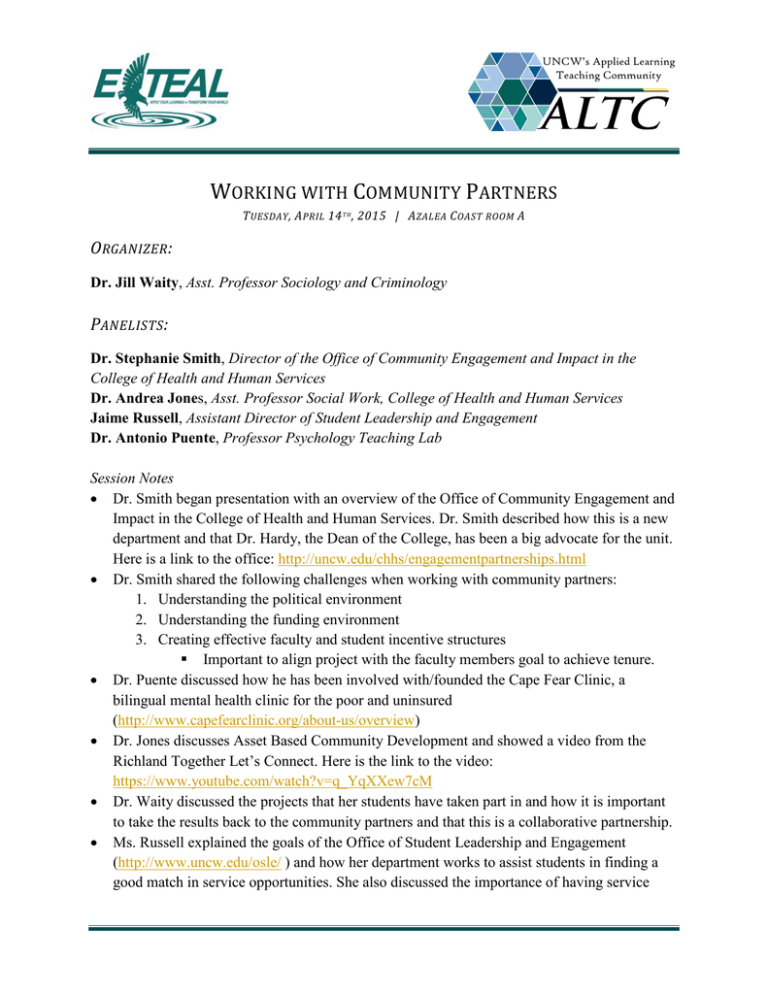
WORKING WITH COMMUNITY PARTNERS T UESDAY , A PRIL 14 TH , 2015 | A ZALEA C OAST ROOM A O RGANIZER : Dr. Jill Waity, Asst. Professor Sociology and Criminology P ANELISTS : Dr. Stephanie Smith, Director of the Office of Community Engagement and Impact in the College of Health and Human Services Dr. Andrea Jones, Asst. Professor Social Work, College of Health and Human Services Jaime Russell, Assistant Director of Student Leadership and Engagement Dr. Antonio Puente, Professor Psychology Teaching Lab Session Notes • Dr. Smith began presentation with an overview of the Office of Community Engagement and Impact in the College of Health and Human Services. Dr. Smith described how this is a new department and that Dr. Hardy, the Dean of the College, has been a big advocate for the unit. Here is a link to the office: http://uncw.edu/chhs/engagementpartnerships.html • Dr. Smith shared the following challenges when working with community partners: 1. Understanding the political environment 2. Understanding the funding environment 3. Creating effective faculty and student incentive structures Important to align project with the faculty members goal to achieve tenure. • Dr. Puente discussed how he has been involved with/founded the Cape Fear Clinic, a bilingual mental health clinic for the poor and uninsured (http://www.capefearclinic.org/about-us/overview) • Dr. Jones discusses Asset Based Community Development and showed a video from the Richland Together Let’s Connect. Here is the link to the video: https://www.youtube.com/watch?v=q_YqXXew7cM • Dr. Waity discussed the projects that her students have taken part in and how it is important to take the results back to the community partners and that this is a collaborative partnership. • Ms. Russell explained the goals of the Office of Student Leadership and Engagement (http://www.uncw.edu/osle/ ) and how her department works to assist students in finding a good match in service opportunities. She also discussed the importance of having service • activities that have an educational component and the need to assist students with the meaning making process of service. After panel presentation, attendees had the opportunity to ask questions: 1. Advice for new faculty? Get tenure before engaging in a long-term service commitment Be patient in discussions with community partners and creating partnerships When creating service opportunities for students, make sure to clearly state how the project connects with course outcomes and learning objectives Wilmington is a very southern community and it takes time for the locals to realize we are an asset. Faculty need to participate in the social life of the community so that they can gain buy-in from the community and develop networks to build community partnerships. 2. Do faculty partner with staff for community projects? There isn’t a clear infrastructure in place to support this partnership. 3. Challenges with faculty and community partners? Certain populations of the community have been researched to death and some researchers have not gotten back with them about the results. It’s important to communicate these results back with the community.




